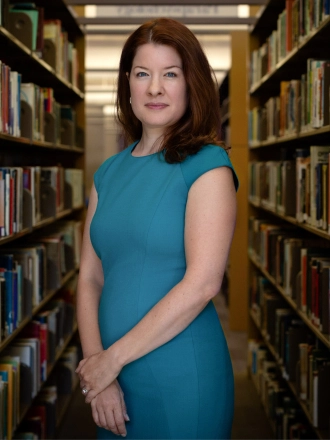
Bob Mackin
The Vancouver Public Library is not immune from the culture war.
According to a list for the period of January 2022 to June 2023, released under the freedom of information law, library users filed 17 challenges to books and one CD. After review, none was removed from the shelves. 
“We see complaints on both sides of the political spectrum,” chief librarian and CEO Christina de Castell said in an interview. “People concerned about racism, concerned about antisemitism, and in older books in VPL’s collection. Then we see a little bit of vandalism happening of books that are promoting inclusion, and particularly around gender identity.”
The subject of complaints included:
- Books for children about same-sex relationships: “Princess Princess Ever After” by Kay O’Neill, “Two Grooms on a Cake: The Story of America’s First Gay Wedding,” by Rob Sanders and “Asha’s Mums” by Michele Paulse and Rosamund Elwin, which elicited two complaints.
- Sex education: “You Know, Sex” by Cory Silverberg.
- A book about rapid-onset gender dysphoria: “Irreversible Damage: The Transgender Craze Seducing Our Daughters” by Abigail Shrier.
- Comics and illustrated children’s books: Four complaints about the Asterix series, including two about “Asterix the Gladiator,” referencing six pages that depict Africans, and a complaint about a vintage warplane emblazoned with a Nazi iron cross in “The Berenstain Bears Take Off!”
- Books from Pacific Northwest authors or publishers about domestic and foreign violent radicals: “Unmasked: Inside Antifa’s Radical Plan the Destroy Democracy” by Andy Ngo; “The White Nationalist Skinhead Movement: UK and USA 1979-1993” by Robert Forbes and Eddie Stampton; and “It IS About Islam: Exposing the Truth About ISIS, Al Qaeda, Iran and the Caliphate” by Glenn Beck.
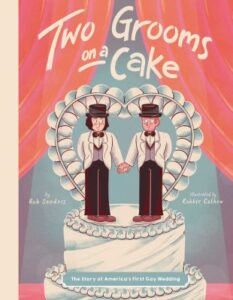 “We do hold so many voices for Vancouver and that means that sometimes we hold things that people disagree with and we try not to judge what someone is coming into a library to explore,” de Castell said.
“We do hold so many voices for Vancouver and that means that sometimes we hold things that people disagree with and we try not to judge what someone is coming into a library to explore,” de Castell said.
While some library users formally ask that a book be banned, others deface public property. Someone added “Jews” to the spine of Noam Chomsky’s “Who Rules the World?” and the words “queer” and “homosexual” were scrawled on the title page and table of contents of former First Lady Michelle Obama’s memoir “Becoming.”
It wasn’t just books. Displays about Pride Month and Indigenous History Month were vandalized or tampered. In August 2022, a sign was stolen from the “You gotta have PRIDE” display and one of the featured books, “Pride: Celebrating Diversity and Community” by Robin Stevenson, was found in the stacks with many pages torn out. 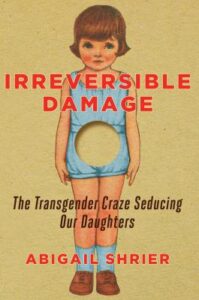
The good news is, the proportion is small — VPL has 2.3 million items in its collection — and Vancouver has not seen the type of coordinated book banning campaigns that libraries have faced in Texas, Florida, Manitoba or New Brunswick. De Castell said only two books have been removed from VPL in the past decade, both for copyright infringement. “Tintin in the Congo” was moved from the children’s to the adult collection, “because of the level of racism in the pictures,” she said.
“It’s hard to see that book censorship coming back into the public conversation,” de Castell said. “We’re sorry to be in this space where book banning is happening and glad that it is happening less in Vancouver. I hope it stays that way.”
VPL participates in the Book and Periodical Council’s Freedom to Read Week campaign every February, which promotes the Charter of Rights and Freedoms protections for thought, belief, opinion and expression. The council’s declaration states, in part: “The freedom to choose what we read does not, however, include the freedom to choose for others.”
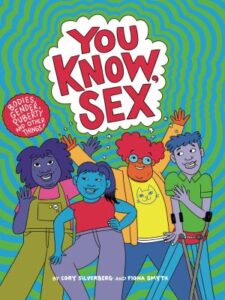 “How do we understand and work out as a society, how we can function democratically, if we can’t read views different from our own? All we create is an echo chamber,” said sociology professor James Turk, director of the Centre for Free Expression (CFE) at Toronto Metropolitan University, formerly Ryerson.
“How do we understand and work out as a society, how we can function democratically, if we can’t read views different from our own? All we create is an echo chamber,” said sociology professor James Turk, director of the Centre for Free Expression (CFE) at Toronto Metropolitan University, formerly Ryerson.
Turk said censorship proponents are motivated by moral and ethical reasons, but there is no evidence that bans lead to less antisemitism, Islamophobia or homophobia. “We have to deal with these problems seriously, it’s just censorship isn’t the way to do it.”
Last fall, CFE launched a Library Challenges Database to keep track of attempts across the country to restrict intellectual freedom at libraries. The database shows 26 complaints at VPL since 2021, with only the People’s Daily — the Chinese Communist Party propaganda organ — being removed after a complaint that it was “politically/ideologically biased.”
Book banning is almost as old as the mass-printing of books. The Catholic Church published a “List of Prohibited Books” from the 16th century until 1966. Great thinkers were victims of censorship. Socrates was executed (“the most extreme form of censorship,” Turk says) for “corrupting the youth of Athens” and Galileo was deemed a heretic and threatened with torture for claiming the Earth revolved around the Sun. 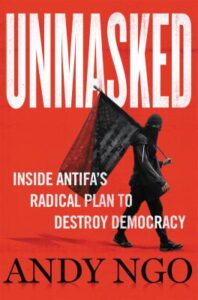
“This has a long history,” Turk said. “What you’re seeing now is a particularly virulent form of it, but there have been virulent forms in the past.”
Turk said groups like Moms for Liberty and Action4Canada are using social media to promote their campaigns to ban books. The latter complained unsuccessfully about certain books in a Chilliwack school library, but the Chilliwack RCMP decided there was no breach of pornography laws.
“Our courts have been very clear what they’re really protecting is expression by marginalized groups, expression by people who don’t like the majoritarian view,” Turk said. “And if you suppress that, then you’re abandoning democracy for an authoritarian form of government.”
Support theBreaker.news for as low as $2 a month on Patreon. Find out how. Click here.











